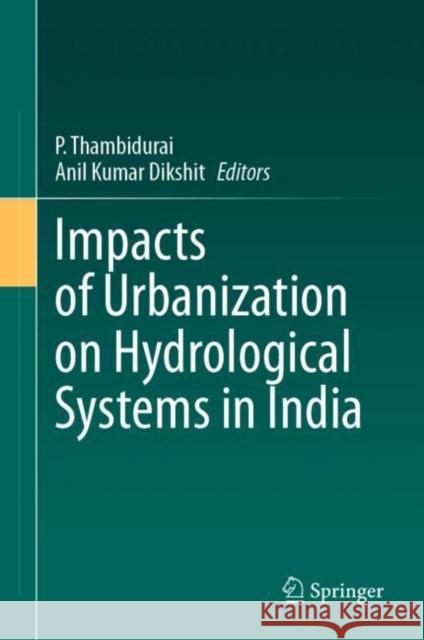Impacts of Urbanization on Hydrological Systems in India » książka
Impacts of Urbanization on Hydrological Systems in India
ISBN-13: 9783031216176 / Angielski / Twarda / 2023 / 396 str.
Impacts of Urbanization on Hydrological Systems in India
ISBN-13: 9783031216176 / Angielski / Twarda / 2023 / 396 str.
(netto: 575,06 VAT: 5%)
Najniższa cena z 30 dni: 578,30
ok. 22 dni roboczych.
Darmowa dostawa!
This book documents the various impacts of urbanization on hydrological systems and water resources. The first half of the book is focused on urbanization and surface waters, starting with the status of hydrological systems in the urban areas, i.e. the catchment characteristics and changes in rainfall dynamics. The most pronounced hydrological problems in cities are changes in runoff due to precipitation. Recently, rain events have been less frequent but more intense, sometimes leading to flash floods. Though the substantial increase in runoff causes floods in the urbanized area, it may be attributed to the reduction of infiltration due to construction of roads. This, in turn, results in groundwater decline and depletion. The second half of the book covers the impact of urbanization on groundwater, which starts with hindered or significantly reduced recharge taking place due to altered urban surfaces. The limited groundwater resources are over-exploited by the urban population, leading to water scarcity and depletion. Groundwater gets polluted due to solid waste dumping sites or by wastewaters discharged by industries. The book will be useful for researchers, educators, municipal/city authorities, government officials, and NGOs.
This book documents the various impacts of urbanization on hydrological systems and water resources. The first half of the book is focused on urbanization and surface waters, starting with the status of hydrological systems in the urban areas, i.e. the catchment characteristics and changes in rainfall dynamics. The most pronounced hydrological problems in cities are changes in runoff due to precipitation. Recently, rain events have been less frequent but more intense, sometimes leading to flash floods. Though the substantial increase in runoff causes floods in the urbanized area, it may be attributed to the reduction of infiltration due to construction of roads. This, in turn, results in groundwater decline and depletion. The second half of the book covers the impact of urbanization on groundwater, which starts with hindered or significantly reduced recharge taking place due to altered urban surfaces. The limited groundwater resources are over-exploited by the urban population, leading to water scarcity and depletion. Groundwater gets polluted due to solid waste dumping sites or by wastewaters discharged by industries. The book will be useful for researchers, educators, municipal/city authorities, government officials, and NGOs.











